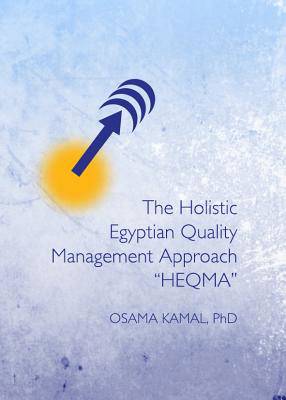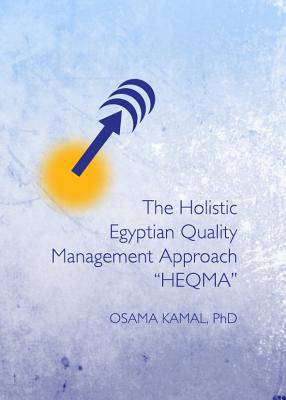
- Afhalen na 1 uur in een winkel met voorraad
- Gratis thuislevering in België vanaf € 30
- Ruim aanbod met 7 miljoen producten
- Afhalen na 1 uur in een winkel met voorraad
- Gratis thuislevering in België vanaf € 30
- Ruim aanbod met 7 miljoen producten
Zoeken
€ 115,45
+ 230 punten
Omschrijving
While industrial organizations in developed countries around the world passed, and benefited from, numerous quality control phases, industrial organizations in Egypt often bypassed the quality control stage, moving straight to practicing quality management systems (QMS) without first verifying product quality. This has created a significant gap that must be overcome in order to allow Egyptian industrial organizations to compete on a global level. This book takes into account the business models most suitable for industrial practice in Egypt, resulting in the formulation of the Holistic Egyptian Quality Management Approach (HEQMA). As the western management style focuses on and is characterized by a result oriented approach, Japanese management is process-oriented and focuses on small continuous improvements. As such, HEQMA focuses on the characters and actions of the people who perform tasks to ensure results. HEQMA consists of 88 criteria, gathered in four bundles to express the main business success factors: the management commitment and corporate ethics factor, the human capital factor, the internal capability factor, and the outcome factor. HEQMA dispenses with management consultants, as it measures how to achieve results within business organizations in a robust manner. HEQMA will contribute to solving many problems currently facing Egyptian industrial organizations, particularly by clarifying from where these problems originate. The model draws the attention of the concerned parties to the proper channels for diagnosing industrial problems in Egypt and explores new integrative management ideas that will suit Egyptian industrial culture. Throughout the research project that culminated in this book, many industry leaders and consultants were interviewed in order to provide an in-depth discussion of the benefits of HEQMA and to help the project meet its ultimate goal of finding ways to strengthen Egyptian industrial quality, in order to eventually support the integration of the Egyptian economy into developed industrial alliances.
Specificaties
Betrokkenen
- Auteur(s):
- Uitgeverij:
Inhoud
- Aantal bladzijden:
- 130
- Taal:
- Engels
Eigenschappen
- Productcode (EAN):
- 9781443846684
- Verschijningsdatum:
- 1/05/2013
- Uitvoering:
- Hardcover
- Formaat:
- Genaaid
- Afmetingen:
- 152 mm x 208 mm
- Gewicht:
- 544 g

Alleen bij Standaard Boekhandel
+ 230 punten op je klantenkaart van Standaard Boekhandel
Beoordelingen
We publiceren alleen reviews die voldoen aan de voorwaarden voor reviews. Bekijk onze voorwaarden voor reviews.







